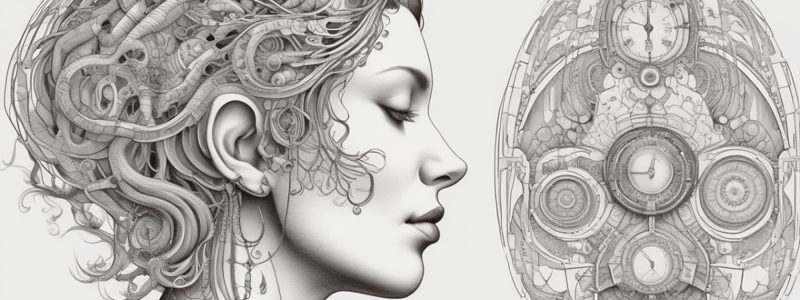Podcast
Questions and Answers
What term is used to describe the 24-hour biological cycle in organisms?
What term is used to describe the 24-hour biological cycle in organisms?
- Diurnal rhythm
- Circadian rhythm (correct)
- External rhythm
- Nocturnal rhythm
What does the Latin word 'nocte' mean?
What does the Latin word 'nocte' mean?
- Month
- Year
- Night (correct)
- Day
Which of the following is NOT affected by the circadian rhythm?
Which of the following is NOT affected by the circadian rhythm?
- Metabolic rate
- Hair color (correct)
- Body temperature
- Cell division
How do external cues help the body's internal clock?
How do external cues help the body's internal clock?
What happens to the body's internal clock in the absence of external stimuli?
What happens to the body's internal clock in the absence of external stimuli?
What keeps our internal clocks on track?
What keeps our internal clocks on track?
Why do we experience 'jet lag' when quickly changing time zones?
Why do we experience 'jet lag' when quickly changing time zones?
Where is the biological clock located in mammals?
Where is the biological clock located in mammals?
Why are biological clocks different from other metabolic processes?
Why are biological clocks different from other metabolic processes?
Why is it important for plants to keep track of the time of year?
Why is it important for plants to keep track of the time of year?
Flashcards are hidden until you start studying




